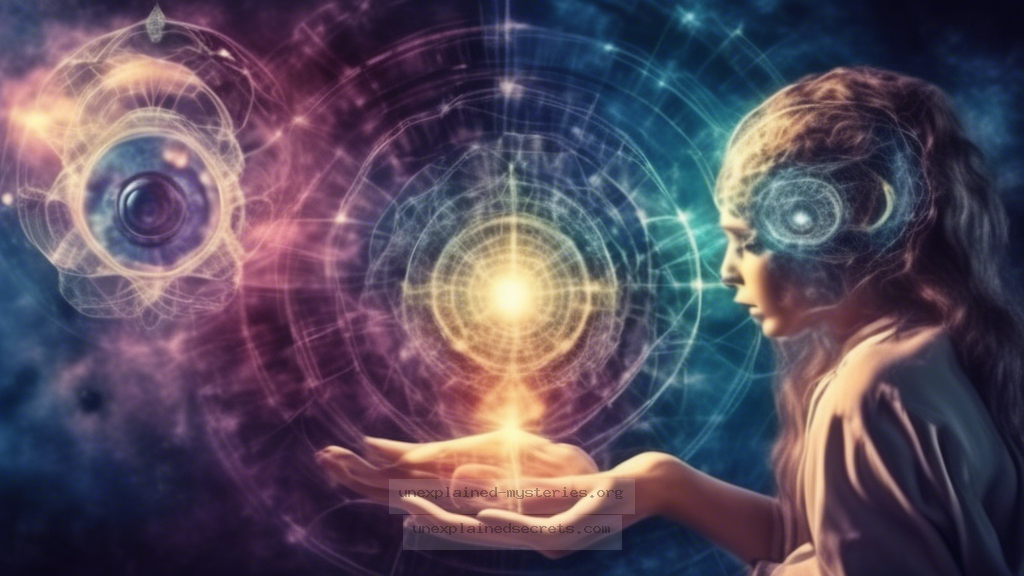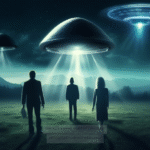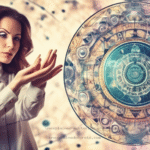Can Psychic Abilities Be Proven Through Scientific Testing?
Can Psychic Abilities Be Proven Through Scientific Testing?
The realm of psychic abilities has long fascinated humanity, igniting debates among skeptics and believers alike. With claims of telepathy, clairvoyance, and precognition, the question arises: Can these extraordinary abilities be scientifically proven? This inquiry is not just a matter of curiosity; it touches upon our understanding of consciousness, reality, and the limits of human potential. In this blog post, we will explore the scientific attempts to validate psychic phenomena, delve into historical accounts, analyze core concepts, and discuss future possibilities in this captivating domain.
Historical Context of Psychic Research
The exploration of psychic abilities dates back centuries, with a rich tapestry of history woven through various cultures. From ancient oracles to modern-day psychics, the belief in the ability to perceive beyond the ordinary has persisted. In the late 19th and early 20th centuries, the advent of psychology and the scientific method prompted a more systematic examination of these phenomena.
One notable figure was Sir William Crookes, a British physicist who conducted experiments in the 1890s with mediums, aiming to demonstrate the existence of paranormal phenomena. His work led to the establishment of the Society for Psychical Research in 1882, which sought to investigate psychic claims with scientific rigor. Crookes’ experiments, though controversial, laid the groundwork for future exploration into the subject.
Core Concepts of Psychic Abilities
Psychic abilities encompass a broad range of phenomena, including but not limited to:
- Telepathy: The ability to transmit thoughts between individuals.
- Clairvoyance: The capacity to gain information about an object or event without using the known human senses.
- Precognition: The purported ability to perceive or predict future events.
These abilities challenge conventional understandings of time, space, and communication. The core concept underlying much of psychic research is the notion of consciousness extending beyond the physical brain, suggesting a potential interconnectedness among individuals that transcends traditional boundaries.
Scientific Testing: Methodologies and Challenges
Scientific testing of psychic phenomena often utilizes controlled experiments to assess claims rigorously. One of the most famous studies was conducted by Dr. Dean Radin at the Institute of Noetic Sciences (IONS). Radin’s research involved random number generators (RNGs), which were tested to see if human intention could influence their output.
In numerous trials, results indicated that when participants focused on the RNGs with intent, the output deviated from statistical randomness, suggesting a potential link between consciousness and physical reality.
Challenges in testing psychic abilities include the difficulty of isolating variables, the potential for observer effects, and the skepticism surrounding anecdotal evidence. As a result, while some studies have shown statistically significant results, they often lack the robust repeatability that is a hallmark of scientific validation.
Real-World Examples: Documented Cases of Psychic Phenomena
Throughout history, numerous documented cases have emerged, providing a rich source of anecdotal evidence for psychic abilities. One of the most compelling cases involves the work of Edgar Cayce, known as the “Sleeping Prophet.” Cayce would enter a trance state and provide detailed medical diagnoses and treatments for individuals, often with remarkable accuracy.
Another well-documented case is that of the so-called “Siberian Shaman,” who reportedly demonstrated the ability to communicate telepathically with animals and humans alike. These accounts serve as fascinating case studies, raising questions about the potential for psychic abilities to exist in a verifiable manner.
| Case Study | Ability Demonstrated | Outcome |
|---|---|---|
| Edgar Cayce | Medical Diagnosis | High accuracy, documented results |
| Siberian Shaman | Telepathy with Animals | Reported successes, cultural significance |
Alternative Perspectives on Psychic Abilities
While many advocate for the existence of psychic abilities, a significant portion of the scientific community remains skeptical. Critics argue that most psychic phenomena can be explained through psychological principles, cognitive biases, and even trickery. The Forer effect, for example, illustrates how individuals tend to see personal significance in vague statements, often leading them to believe in the accuracy of psychic readings.
Furthermore, proponents of the skeptic viewpoint emphasize the importance of rigorous methodology in scientific testing. They argue that anecdotal evidence and personal experiences, while compelling, do not constitute proof of psychic phenomena. This divide between believers and skeptics highlights the need for open dialogue and continued investigation.
Common Misconceptions and Clarifications
Several misconceptions about psychic abilities often cloud the discourse surrounding their validity. Here are a few common myths debunked:
- All psychics are frauds: While some individuals may exploit beliefs for financial gain, many genuinely believe in their abilities and have had profound experiences.
- Psychic abilities violate the laws of physics: The debate extends into metaphysics, challenging our understanding of consciousness rather than dismissing it outright.
- Psychics can predict the future with certainty: Most claims of precognition are probabilistic and often interpreted post-event, leading to perceived accuracy.
These misconceptions can hinder productive discussions and research efforts. By clarifying these points, we can foster a more nuanced understanding of psychic phenomena.
Best Practices for Investigating Psychic Claims
For those interested in exploring psychic abilities, whether as researchers or enthusiasts, adopting a methodical approach is essential. Here are some best practices:
- Maintain an open yet skeptical mindset: Approach claims with curiosity, but also apply critical thinking to evaluate evidence.
- Document everything: Keeping detailed records of experiences, results, and methodologies can help in assessing patterns and outcomes.
- Engage with the community: Collaborating with other researchers and practitioners can provide valuable insights and enhance the credibility of findings.
Future Developments and Ongoing Research
The exploration of psychic abilities is far from over. Emerging technologies, such as brain imaging and neurofeedback, may provide new avenues for understanding consciousness and its potential extrasensory capabilities. Ongoing research at institutions like IONS continues to push the boundaries of what is known about the human mind.
Moreover, interdisciplinary approaches combining psychology, neuroscience, and quantum physics could yield new insights into the nature of reality and the interconnectedness of consciousness. As societal acceptance of alternative modalities grows, we may see an increase in funding and interest in serious psychic research.
Conclusion: The Quest for Understanding Psychic Abilities
In summary, the question of whether psychic abilities can be proven through scientific testing is both complex and intriguing. While historical context and documented cases provide compelling narratives, scientific scrutiny remains essential for validating claims. The divide between skeptics and believers highlights the need for continued dialogue and research.
By approaching this topic with an open mind and critical thinking, we can contribute to a more profound understanding of consciousness and the possibilities that lie beyond our current knowledge. As researchers and enthusiasts continue to explore this enigmatic realm, the potential for discovery remains vast and exciting.
Other Articles
Recent Posts
- What Happened to Flight MH370? The Conspiracy Theories That Still Haunt Us
- What Secrets Lurk Within the Walls of the Infamous Trans-Allegheny Lunatic Asylum?
- What Evidence Supports the Existence of Bigfoot in the Pacific Northwest?
- What Happened to the Indus Valley Civilization? Unraveling the Mysteries of Ancient Urban Life
- Can Telepathy Be Scientifically Proven Through Laboratory Evidence?







